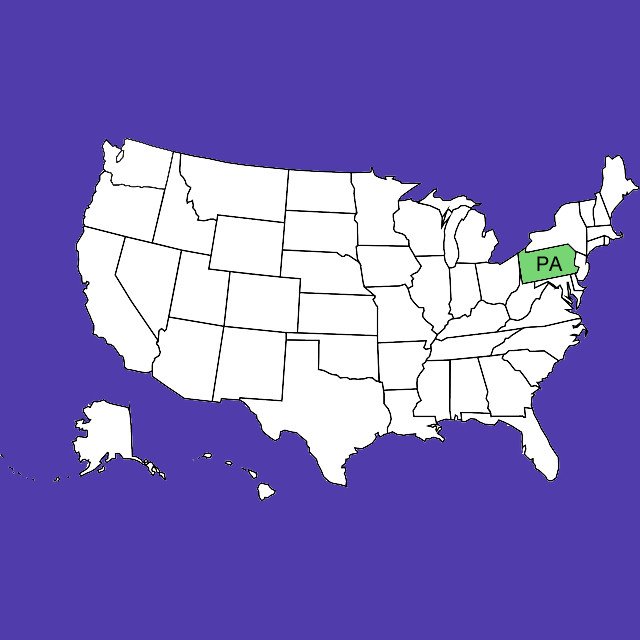Last month, the Pennsylvania Supreme Court took a significant step toward ensuring that Pennsylvania protects medical marijuana patients from unjust punishment. On June 18, 2020, the Court issued an important ruling on a fundamental issue of statutory interpretation of the Medical Marijuana Act (“MMA”), holding that probation policies violate the MMA if they “are constructed upon a presumption that any and all [medical marijuana] use is impermissible.” Gass v. 52nd Judicial Dist., Lebanon Cty., 2020 WL 3272752, 7 (Pa. 2020).

By Zach Holdsman and Kelly Huff, Esq.
Kelly Huff is a lawyer at Montgomery McCracken Walker & Rhoads, LLP in Philadelphia and is licensed in Pennsylvania and New Jersey. Ms. Huff regularly advises companies on an array of cannabis law issues evolving out of federal and state law, including employee drug testing, banking issues, contract negotiations, and FDA advertising/labeling issues.

Kelly Huff of Montgomery McCracken Walker & Rhoads LLP
Zach Holdsman is a third-year law student at Drexel University in Philadelphia and a summer law clerk at Montgomery McCracken. Mr. Holdsman has an undergraduate background in agriculture and botany, is studying for the U.S. Patent Bar, and provides research support on a variety of cannabis law matters.

Zach Holdsman of Montgomery McCracken Walker & Rhoads LLP
Last month, the Pennsylvania Supreme Court took a significant step toward ensuring that Pennsylvania protects medical marijuana patients from unjust punishment. On June 18, 2020, the Court issued an important ruling on a fundamental issue of statutory interpretation of the Medical Marijuana Act (“MMA”), holding that probation policies violate the MMA if they “are constructed upon a presumption that any and all [medical marijuana] use is impermissible.” Gass v. 52nd Judicial Dist., Lebanon Cty., 2020 WL 3272752, 7 (Pa. 2020).
While the scope of this ruling is specifically limited to medical marijuana patients who are subject to the Board of Probation and Parole, the holding in this case signifies what many Pennsylvania citizens have anticipated and many cannabis businesses and entrepreneurs have hoped for; the mores of cannabis are further springing toward acceptance and support in Pennsylvania. There has been little case law in Pennsylvania in the four years since the Pennsylvania legislature enacted the MMA in 2016. Now, the highest court in Pennsylvania has expressly recognized the critical policy behind the legislation: “In enacting the MMA, the Pennsylvania Legislature proceeded pursuant to its independent power to define state criminal law and promote the health and welfare of the citizenry.” Id. at 4.
In Gass, more than sixty people in Lebanon County were faced with the choice of discontinuing their lawful use of medical marijuana or risk revocation of their probation and possible incarceration. After a series of judicial actions, the Pennsylvania Supreme Court elected to exercise its extraordinary King’s Bench jurisdiction to consider the central question: whether Lebanon County’s Medical Marijuana Policy violated the MMA.
Noting that the MMA accords specific treatment to criminal offenders, the Court highlighted that: (1) individuals who have been convicted of drug offenses cannot be affiliated with a medical marijuana dispensary or grower/processor; (2) criminal drug offenders may be ineligible to serve as “caregivers” (those designated by patients to deliver medical marijuana), and (3) that medical marijuana use is prohibited in correctional institutions. Id. at 6. The Court emphasized, however, that these restrictions do not limit the use of medical marijuana or an individual’s ability to qualify as a medical marijuana “patient” outside of the aforementioned parameters. Id. The Court also indicated that unlawful use of marijuana, or use not permitted under the MMA, by those on probation is still punishable. Id. at 8.
In regard to the on-going tension between state and federal law, the Court stated that “While the circumstances are certainly uneasy — since possession and use of medical marijuana remains a federal crime — we find that the District cannot require state-level adherence to the federal prohibition, where the General Assembly has specifically undertaken to legalize the use of medical marijuana for enumerated therapeutic purposes.” Id. at 7.
The key takeaway for cannabis business owners is that the MMA has survived critical scrutiny in the Pennsylvania Supreme Court. This opinion indicates that the MMA will continue to be recognized and upheld for the purpose of protecting those requiring medical marijuana for health issues while on probation, and that is a victory for medical cannabis patients and businesses alike.
Montgomery McCracken Walker & Rhoads LLP
1735 Market Street | Philadelphia, PA | 19103





